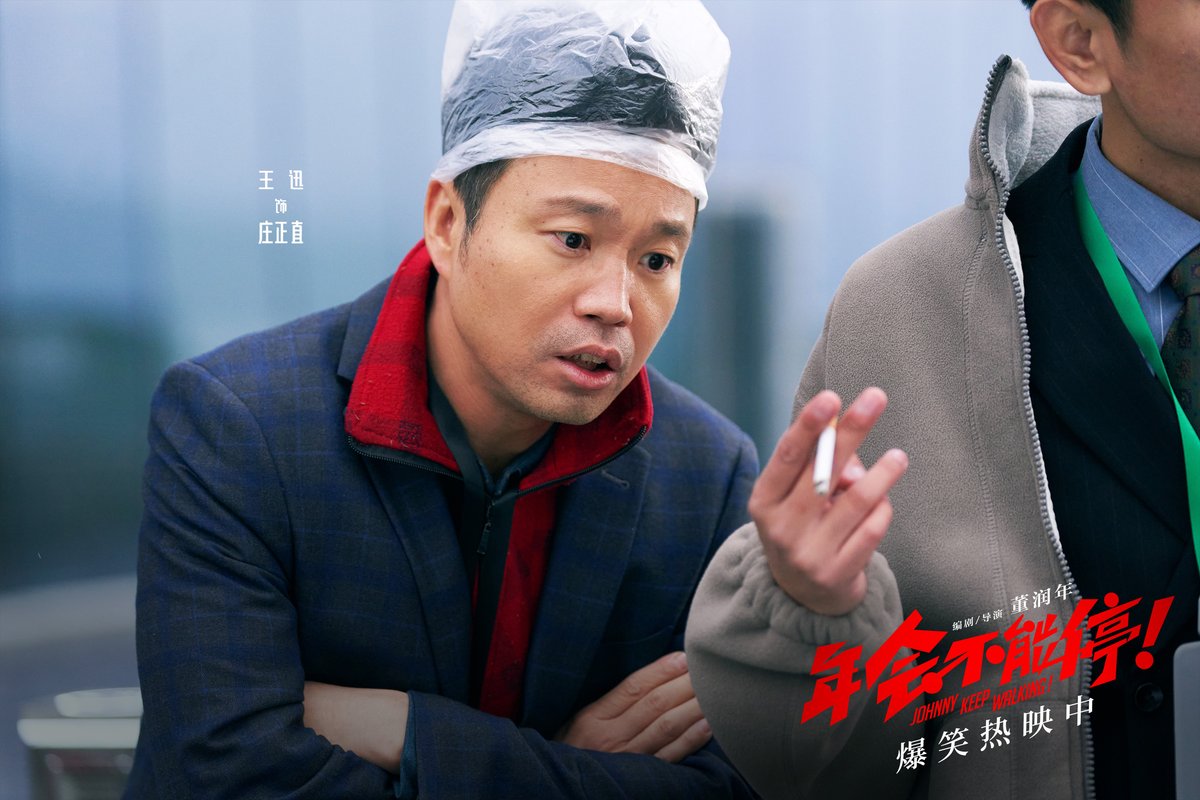China’s latest meme celebrates unsung, “spineless” heroes, proving that real strength often lies in the beautifully flawed
Chinese viewers are done with handsome, strong-willed, ambitious movie protagonists. Perhaps accepting that superheroes are only fiction, female fans are now obsessed with anti-heroes they have affectionately labeled “the spineless (窝囊废 wōnangfèi).”
The trend started with Ma Jie (played by Bai Ke), a hapless HR manager in the comedy Johnny Keep Walking!, released earlier this year. Ma is plain-looking, submissive, and lacks ambition. He dutifully accepts blame from his bosses and obediently follows every nonsensical corporate instruction, all to safeguard his job and support his family.
Despite Ma’s apparent weaknesses, netizens admire his gentleness, diligence, and sense of familial responsibility. They have turned the originally negative word 窝囊 (wōnang), meaning spineless or incompetent, into a virtue.
“Bai Ke’s portrayal of a cowardly, submissive, pitiful, and spineless man just mesmerizes me (又怂又乖的受气包窝囊废样迷死我了 Yòu sóng yòu guāi de shòuqìbāo wōnangfèi yàng mísǐ wǒ le),” wrote one user on the Instagram-like social media platform Xiaohongshu. For some, his perseverance in the face of adversity has even made him “spineless yet sexy (有种窝囊的性感 yǒu zhǒng wōnang de xìnggǎn).”
“When Bai shouted out ‘How can my family live if I lose my job!’ from the rooftop, his sense of being a good husband soared to the sky. (白客天台喊出 ‘我失业了,家人怎么办’ 时,人夫感已冲出天际。Bái Kè tiāntái hǎnchū ‘Wǒ shīyè le, jiārén zěnme bàn’ shí, rénfūgǎn yǐ chōngchū tiānjì.)” reads one comment with 12,000 “likes” on the Chinese review platform Douban. Audiences are clearly tired of flawless heroes that don’t exist in reality.
Bai has been labeled an “economically affordable husband (经济适用型老公 jīngjì shìyòngxíng lǎogōng),” a play on “economically affordable housing (经济适用房 jīngjì shìyòngfáng)” that is provided for people with lower household incomes. With real estate prices high in many cities, affordable housing is a practical and realistic way for young people to get on the housing ladder. Similarly, Ma and other spineless individuals seem to represent solid but unextraordinary partners. They are quintessential “good family men (居家好男人 jūjiā hǎo nánrén)” who will be diligent at work, buy food on the way home, cook dinner, and even do the dishes.
Another character netizens have identified as on “the entertainment industry race track of spinelessness (内娱窝囊废赛道 nèiyú wōnangfèi sàidào)” is Han Ming (Lei Jiayin). This weary, middle-aged prosecutor struggles to balance his tumultuous work and family issues in the recent comedy-drama Article 20. Due to Lei’s track record of depicting various exhausted, middle-aged men on screen, netizens consider him as controlling the “territory of timid losers (受气包统治区 shòuqìbāo tǒngzhìqū)” in the Chinese entertainment industry.
To qualify as “spineless,” actors can’t be too handsome or dignified. Instead, they should have droopy eyes and furrowed brows that convey a “pitiful, miserable look (委屈巴巴的苦相 wěiqu bābā de kǔxiàng).” They may “lie flat (躺平 tǎngpíng)” and struggle to cope with difficult working cultures—overtime, nasty bosses, pointless bureaucracy—but they are kind-hearted and devoid of machismo.
Some young fans relate to these “leftovers of society (社会的边角料 shèhuì de biānjiǎoliào).” “In the presence of spineless actors, audiences truly feel equal, and even find solace in looking down on their embarrassing situation. You are a waste, but I love you. (在 ‘窝囊废’ 演员面前,观众才真正觉得被平视。乃至在俯视窝囊废的窘态中,感觉到了慰藉。你废了,我爱了。Zài ‘wōnangfèi’ yǎnyuán miànqián, guānzhòng cái zhēnzhèng juéde bèi píngshì. Nǎizhì zài fǔshì wōnangfèi de jiǒngtài zhōng, gǎnjué dào le wèijiè. Nǐ fèi le, wǒ ài le.)” wrote one film reviewer in a WeChat post dated March 6.
As the trend for anti-heroes has swept social media, netizens have been poking fun at their own spinelessness in the face of heavy workloads and peer competition. “Dare to provoke me, then you pick on the right soft tomato. I am the most spineless person within a hundred miles. (敢惹我,那算你挑到软柿子了,你惹到了方圆百里最好惹的人。Gǎn rě wǒ, nà suàn nǐ tiāodào ruǎnshìzi le, nǐ rědàole fāngyuán bǎilǐ zuì hǎorě de rén.)” reads one comment from February 20 on Xiaohongshu. “What I’m best at is collapsing after one setback (我最擅长的事,就是一蹶不振 Wǒ zuì shàncháng de shì, jiùshì yìjué búzhèn),” reads another on the same platform.
By humorously embracing characters who reflect their own struggles, netizens find comfort and inspiration in the ordinary—and may even end up redefining what it means to be a hero along the way.













